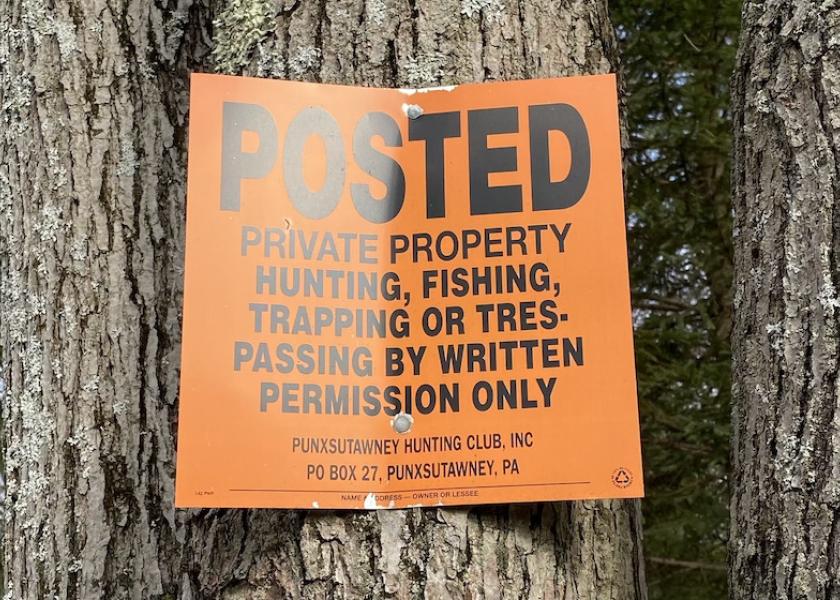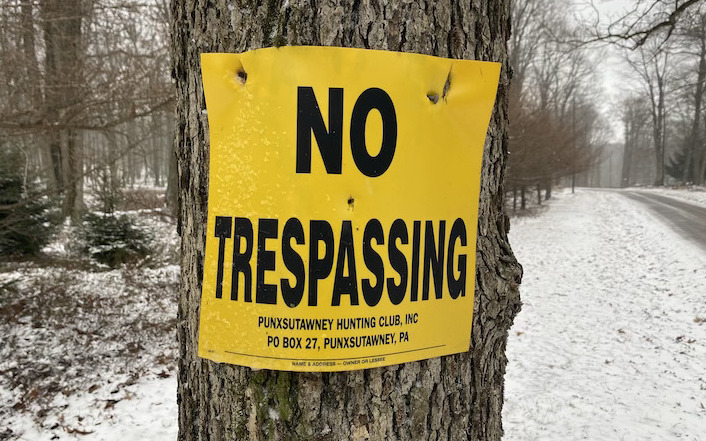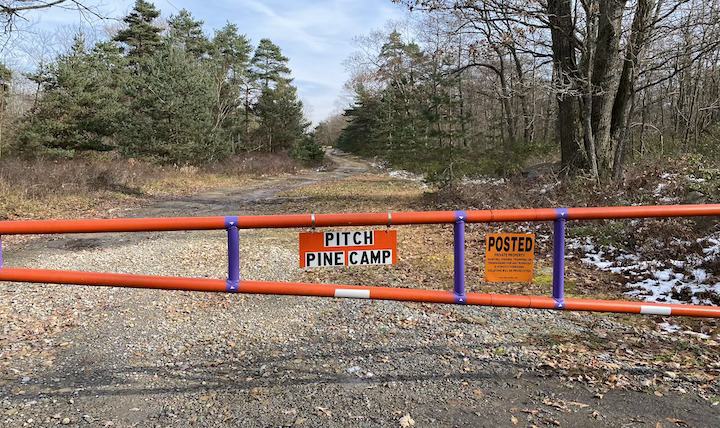Government’s Grip on Private Land Boosted by Court Ruling Against Hunting Clubs

How much power does the government claim on private land? “Unfettered.”
On Sept. 29, a court ruled against two hunting clubs in their lawsuit accusing the Pennsylvania Game Commission (PGC) of private property rights violations. The Institute for Justice (IJ) represents both clubs and will appeal.
In its ruling, the Commonwealth Court of Pennsylvania noted the government’s absolute power to “roam private land without consent, warrants, or probable cause.”
“Private land isn’t public property,” says IJ attorney Josh Windham. “That might seem obvious. But all too many officials, at every level of government, disagree. They think they have a blank check to invade private property. We’ll see what the Pennsylvania Supreme Court has to say about that.”
No Warrant; No Guidelines
On Dec. 16, 2021, Pitch Pine and Punxsutawney hunting clubs sued PGC after game wardens consistently entered club lands without permission or warrant, and secretly monitored club members, including photo collection via installation of a hidden game camera. The wardens’ behavior, the lawsuit asserted, was a direct violation of Pennsylvania’s state constitution, which explicitly protects “persons, houses, papers, and possessions.”

(The Pennsylvania Game Commission declined Farm Journal’s general private property questions and deferred litigation questions to the Pennsylvania Office of Attorney General. In turn, when asked by Farm Journal about Pitch Pine-Punxsutawney litigation, the Pennsylvania AG office deferred comment back to the Pennsylvania Game Commission.)
Most Americans assume law enforcement must obtain a warrant to enter or surveil private land, but for roughly a century, the Open Fields doctrine has allowed government officials, at state and federal levels, unqualified access to private land.
In its judgement on Sept. 29, the Commonwealth Court detailed the alarming powers and “unfettered discretion” assumed by government via Open Fields: The facts of this case are not in dispute. The Hunting Clubs are member-owned hunting clubs that own thousands of acres of private land in Clearfield County. Members use the properties to hunt, vacation, and enjoy nature. To ensure their members’ privacy, the Hunting Clubs have posted their properties with no trespassing signs and have installed gates at all entrances to exclude nonmembers and intruders. However, the Entry Statutes empower game wardens with unfettered discretion to enter upon and roam private land without consent, warrants, or probable cause.
Yet, in ruling against the two hunting clubs (Pitch Pine and Punxsutawney), the Commonwealth Court was bound by precedent set in Pennsylvania v. Russo (2007), when the Pennsylvania Supreme Court said “possessions” do not include private land.
The Pitch Pine and Punxsutawney lawsuit now moves to appeal. The hunting clubs, represented by IJ, will seek to overturn the Russo decision, and ask the Pennsylvania Supreme Court to address a pressing question: Does the state constitution protect citizens from warrantless searches on private land?
“Russo was wrongly decided and we’re eager to show the Pennsylvania Supreme Court why,” Windham says. “The Open Fields doctrine destroys the point of having private land. It treats fences, gates, posted signs, and everything else you might do to keep your land private, as irrelevant. And, in turn, it gives the government unfettered power to enter your land, roam around, spy on you, take photos, record videos, take soil samples, ride around in bikes, trucks—even horses—all without a warrant. We’re supposed to think that’s constitutional?”

Presently, six states place state constitutional authority above the Open Fields doctrine: Mississippi, Montana, New York, Oregon, Vermont, and Washington. (For more on Open Fields, see How Much Ag Property Is Protected From a Warrantless Search?)
The Pitch Pine and Punxsutawney arguments before the Pennsylvania Supreme Court should take place in 2024, with a decision likely in 2025. IJ is currently litigating similar Open Fields cases in Virginia and Tennessee about warrantless intrusions on private land.
In an Oct. 2 IJ release, Frank Stockdale, president of the Punxsutawney Hunting Club, summarized the private landownership case: “The government has no right to spy on us on our own land without cause. This entire endeavor has been outrageous and needs to end now.”
For more from Chris Bennett (cbennett@farmjournal.com 662-592-1106) see:
While America Slept, China Stole the Farm
Priceless Pistol Found After Decades Lost in Farmhouse Attic
Cottonmouth Farmer: The Insane Tale of a Buck-Wild Scheme to Corner the Snake Venom Market
Tractorcade: How an Epic Convoy and Legendary Farmer Army Shook Washington, D.C.







